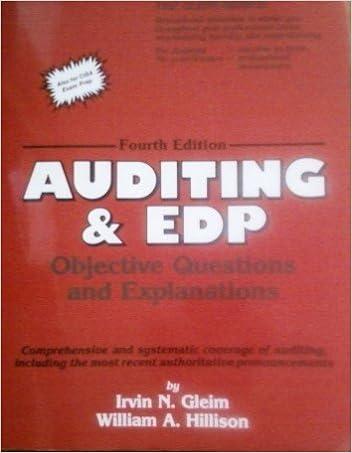Question
12. Define the term strike price, in-the-money, out-of-the-money, exercise value, and time premium. a. the strike price is the value of the asset b. exercising
12. Define the term strike price, in-the-money, out-of-the-money, exercise value, and time premium. a. the strike price is the value of the asset b. exercising an in-the-money option provides an advantage over open market purchase c. exercise value is the advantage that exercising an option has over an open market purchase d. an option's time premium is the difference between its market price and its exercise value e. A and B f. A and C g. A and D h. B and C i. B and D j. C and D k. all but A l. all but B m. all but C n. all but D o. all are true
--------------
15. (Exercise value of executive stock options) In a few years, your employer announces a new compensation plan that includes stock options for the firms managers. You are granted stock options on 10,000 shares with a strike price equal to the current stock price of $70. In five years when the options expire, what is the exercise value of your options if the stock price has risen to $135.00? a. $0 b. $100,000 c. $250,000 d. $450,000 e. $650,000 f. $750,000 g. $850,000 h. $950,000 b. What is the exercise value of your options if the stock price is $50.00? a. $0 b. $100,000 c. $250,000 d. $450,000 e. $650,000 f. $750,000 g. $850,000
h. $950,000
Step by Step Solution
There are 3 Steps involved in it
Step: 1

Get Instant Access to Expert-Tailored Solutions
See step-by-step solutions with expert insights and AI powered tools for academic success
Step: 2

Step: 3

Ace Your Homework with AI
Get the answers you need in no time with our AI-driven, step-by-step assistance
Get Started


